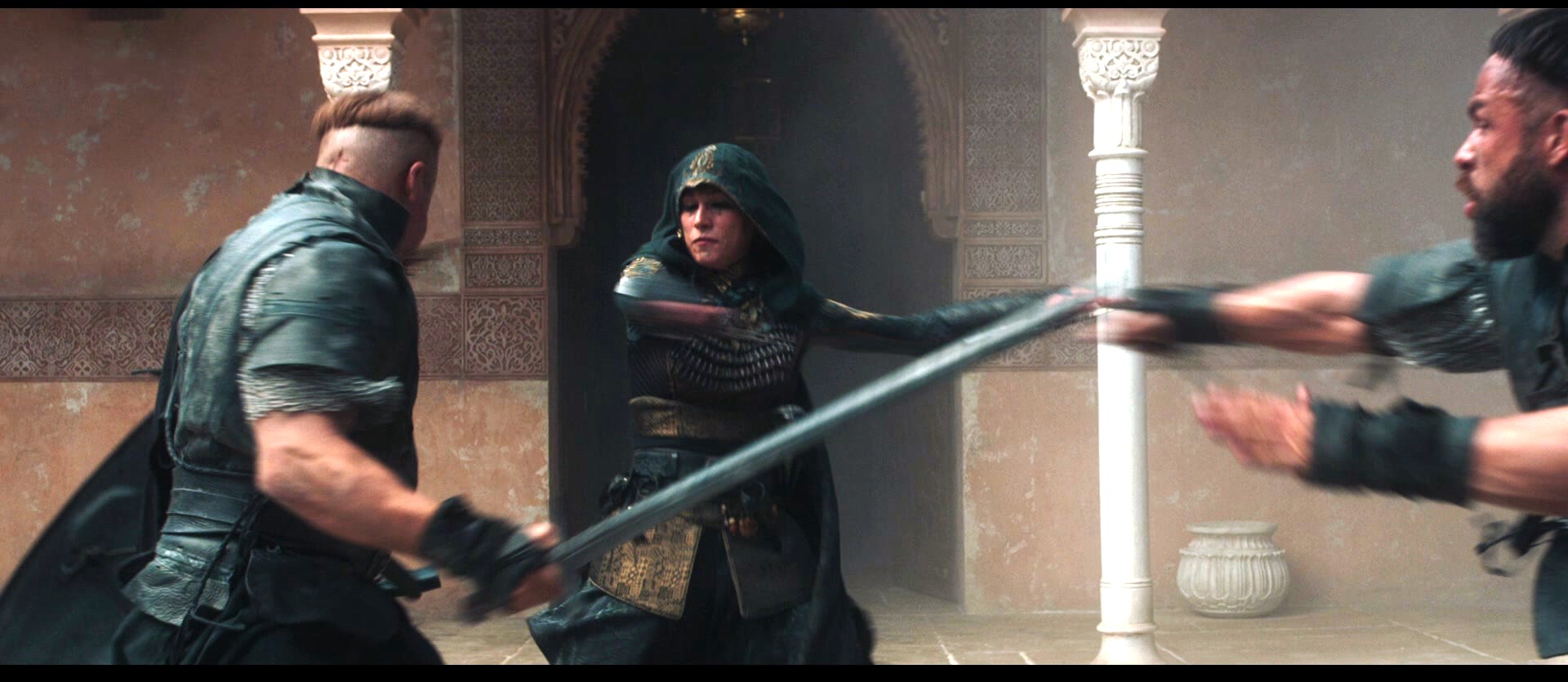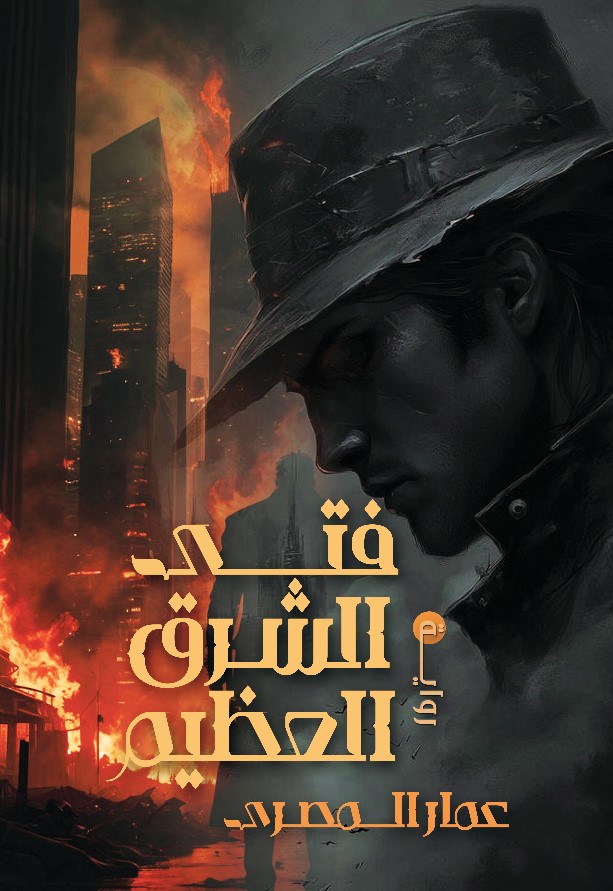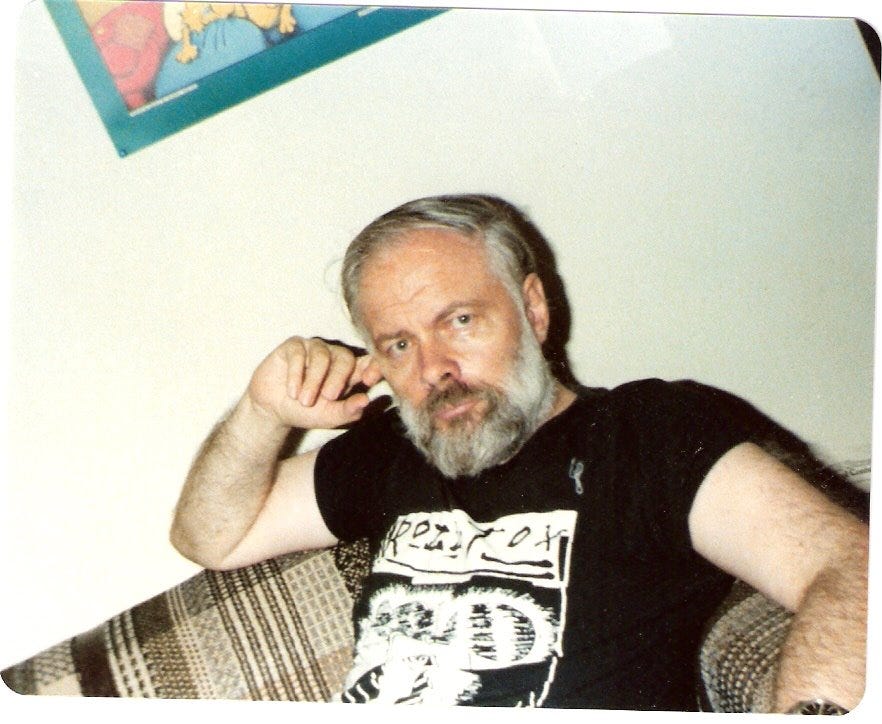
I made a concerted decision not to buy too much SF during the Cairo International Book Fair this year, but one novel I had to get was Ammar Al-Masry’s The Great Oriental Boy (فتى الشرق العظيم, 2024).
By Emad Aysha
An Egyptian boy living in Istanbul receives a mysterious email with an encrypted file from an old friend, and he almost doesn’t take it seriously. However, he gets a message warning him that someone with murderous intent will knock on his door soon.
The prophecies come true and he’s thrown into a vortex of intrigue from that point onwards, with assassins and goons coming at him from left, right and centre, forcing him to join his mysterious benefactors just to survive.
It turns out there’s a shadow government secretly running the world, and all the legendary secret societies (Masons, Templars, Skulls & Bones, Illuminati) are just finger puppets for these real power brokers.
The only people who can counter them are a secret group run by the mysterious Great Oriental Boy, with the operatives coming from all over the Global South, and covering their faces with masks and with all sorts of martial arts skills that the hero and his Egyptian buddies have to learn.
In typical Ammar Al-Masry fashion, the novel drags on endlessly with way too many characters, good and bad, to the point that you confuse one with the other. The fight sequences go on forever and ever too with endless evil monologues while two guys are at each other’s throats.
But for all that, the novel hits home and warps your imagination, knowledge of reality, and writing.
Ammar uses a very different mode of writing from Western-style SF and much Arab SF, which imitates it. You don’t have a single protagonist or alpha male gung-ho hero. Quite the opposite, with the narrators being hapless middle-of-the-row Egyptians who try to stay out of trouble and with collective leadership on both sides.
This is reminiscent of the kind of collective heroism you see in Star Trek Beyond (2016), directed non-coincidentally by a Chinaman, Justin Lin. It’s a refreshing difference from the overpowered hyper-individualism you get from the Hollywood movie model.
It’s also great to see Arabs finally get their act together here and learning to work with each other against the common Western enemy, and working through industrialising, the application of science with economic conglomerates.

AMMAR'S APOCALYPSE: Film noir meets underground politics in a spy thriller spanning this world, and world's beyond outerspace and ancient times.
The novel also successfully pulls the wool over your eyes at several key points in the storyline, making you think these people are buffoons being manipulated in typical fashion by Western powers, or that the good guys have fallen into a trap through their over enthusiasm.
It’s a large novel, 50,000 words long, but a fast read. A real page-turner with action galore and a good sense of pacing that lets you breathe while always keeping you engaged.
For some reason, the publisher didn’t bother to tell us that this is the first instalment of a new series, meaning it has to answer all the unanswered questions. Even with all the progress made, nothing’s ever perfect in the wacky world of Egyptian publishers.
The novel also clearly alludes to Bill Gates (and Elon Musk), with anarchist businessmen who want to destroy the world for the sake of quick profits and bragging rights over being the world’s richest man. Another related plus point is humour. You have a funny scene where this business tycoon meets a Saudi industrialist.
Being a stickler for detail and keeping up appearances, the Saudi eats a fish too quickly, avoiding what could be pig meat, and almost chokes on the fish bones. He’s also dead set against a rival Moroccan businessman and trusts the American too much, giving him his security key as a goodwill gesture.
Another positive point is the presence of so many young heroes making significant breakthroughs in exposing the shadow government, including a Brazilian boy who hid coded information using ancient inscriptions that could be from extraterrestrials.
Arabic culture is very ageist, in reverse, so this is a positive development. Also, despite the conspiracy credentials, it is notable that Jews are not castigated here, in the typical Protocols of the Elders of Zion fashion.
The Catholic Church does have a dark role to play, however, and one of the adventurous high points is when the young Egyptian heroes enter the Vatican archives disguised as knights of Malta. This is where the plot thickens and the themes begin to crystallise.
The so-called Voyages of Discovery and the Crusades are explicitly mentioned, with hints at immortality and the thematics of torch-bearing from one evil to the subsequent wars of religion to colonial extermination. This is an attempt to reverse the 500 years of European domination, finally, the ultimate example of decolonising the human imagination.
The further East you go, the better. China will be the new kingpin, and Egyptian and Arab SF authors are ahead of the pack here, and have been for a while.

ARMCHAIR PROPHET: Philip K. Dick argued against the 500-years of white domination and prophesized a resurrected Global South in his novel 'Dr. Futurity' (1960). [Photo from 'Medium']
The bad guys, while portrayed in a kind of video game/comic book fashion, are a motley crew that represent all that is bad in Western history, including Nazism with an actual German general left over from Hitler’s day.
He even explains that this secret elite tricked the Nazis into starting WWII to destroy Germany and Europe and so clear a path for American ascendancy. There are allusions to US imperialism elsewhere, such as the secret prison complex off the coast of South Africa. (Black CIA torture sites).
To finish off, the novel anticipated a small revelation about the JFK files: James Angleton wasn’t actually a high ambassador of the sovereign military order of Malta. (See Ross Coulthart’s interview of Geoff Cruickshank.)
Just like in the novel, not a Zionist but a crusader - literally!!





